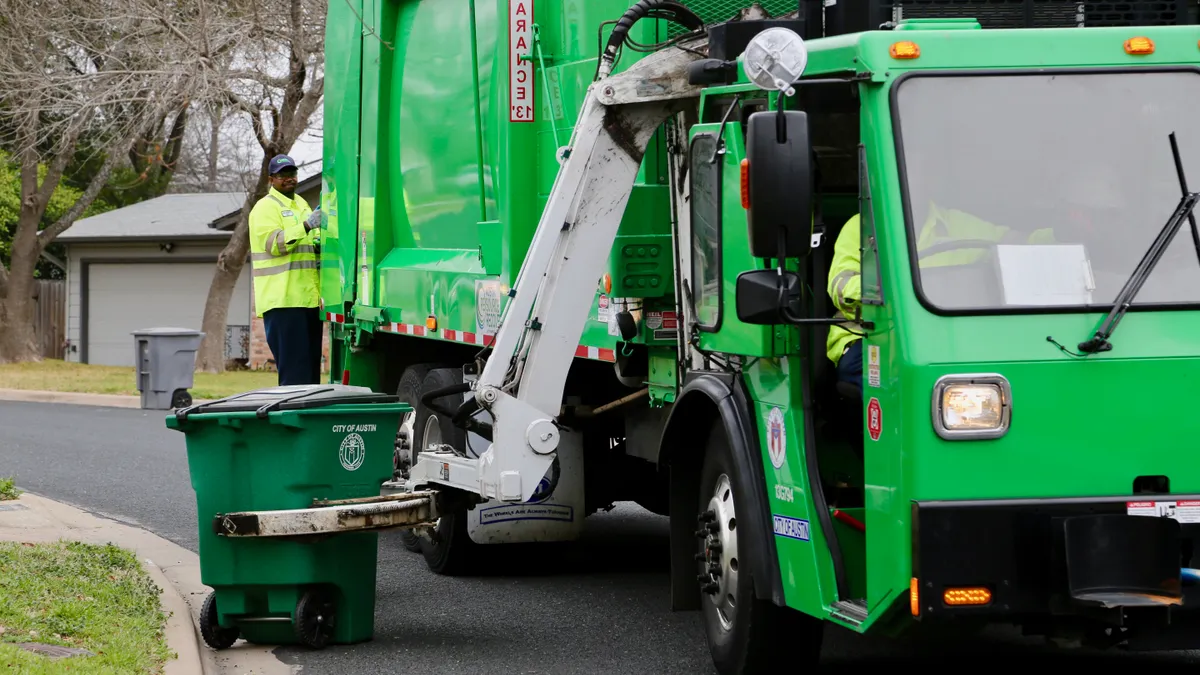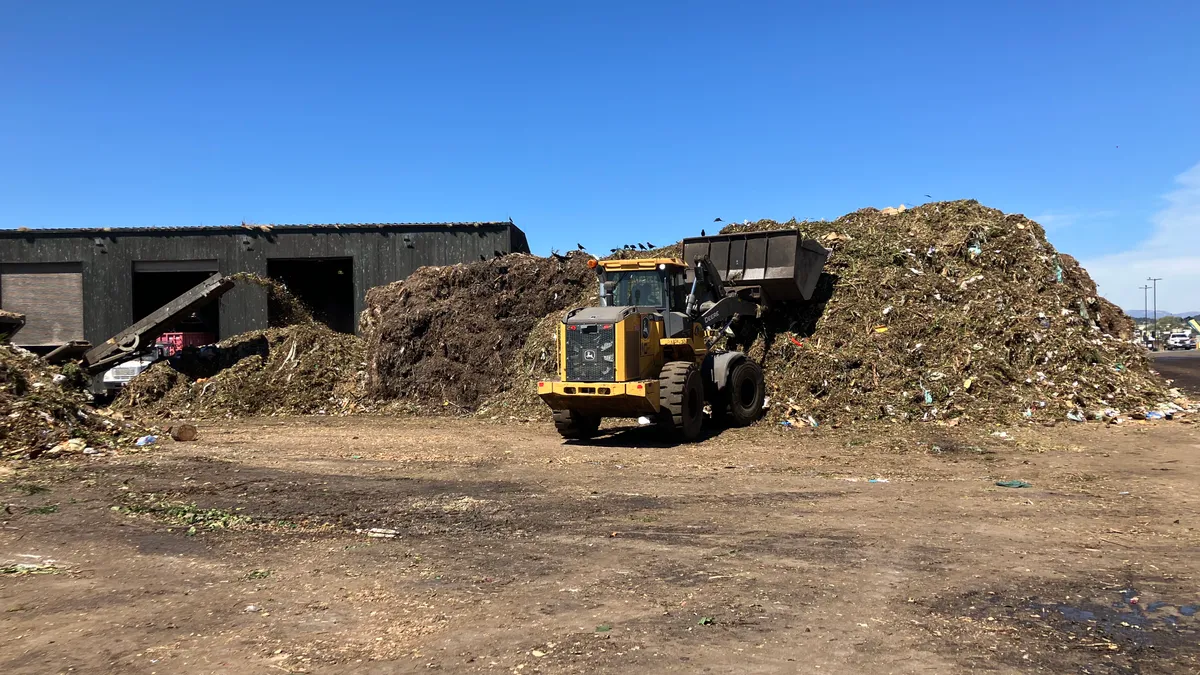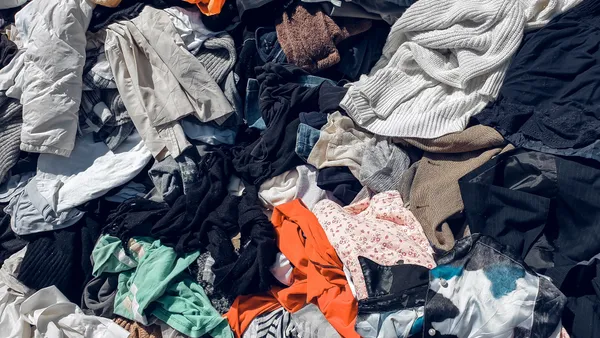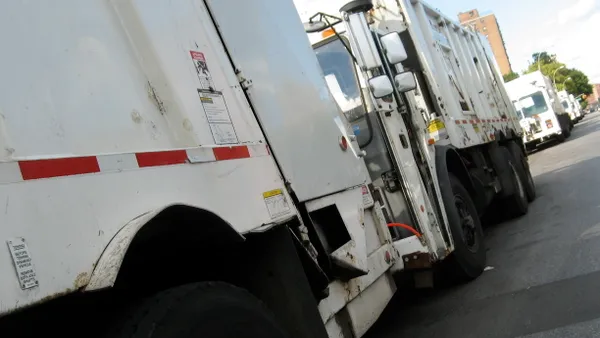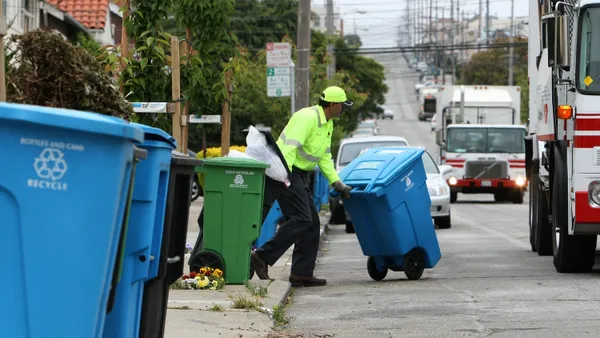UPDATE: Austin's curbside compost pickup will expand Oct. 2, with 38,000 more homes across the city scheduled to get the service, as reported in MyStatesman. The expansion will bring the total number of homes serviced to 52,000.
The plan is still to expand curbside organics collection to the entire city by 2020. Currently, Austin residents with curbside trash pickup pay $1 each month for the composting program — whether or not they have the green bins for curbside organics pickup. When the program reaches its citywide goal, customers will pay $4 a month for composting.
Dive Brief:
- The Austin City Council voted to approve a new 3-year, $1.51 million composting contract with local company Organics "By Gosh" at a June 22 meeting, enabling citywide curbside organics collection, as reported by the Austin Monitor.
- This will expand Austin's current pilot program from 14,000 to 200,000 households by the end of 2020. New routes will be gradually phased in beginning this September. Austin Resource Recovery will continue to collect the material and Organics "By Gosh" will compost it at one of multiple sites in the region.
- This plan was held up in part by opposition from Texas Disposal Systems, which didn't bid on the contract because of the city's anti-lobbying ordinance, but has reportedly inserted itself into multiple contract discussions. An attorney at the company raised issues intended to discredit Organics "By Gosh" during the final council hearing, which led to an extended discussion.
Dive Insight:
Austin's curbside collection pilot originally launched in 2012 and Organics "By Gosh" has been accepting the material for free since then. This new contract will require the small family-run business to scale up its operations significantly, including the purchase of a new site, which was the main pressure point Texas Disposal Systems tried to exploit. Critics raised questions about transport distances, proximity to a flood plain and a variety of other issues. Austin Mayor Steve Adler also advocated for waiting to make any decision until a working group released its report on what some see as a broken waste contracting process. Adler voted against the contract.
The approved contract also has the option for three 1-year renewals, allowing the city multiple opportunities to readjust if officials aren't satisfied. Unlike some other cities that have been hesitant about making the leap to organics diversion, Austin is already engaged with the concept as part of its broader goal to hit "zero waste" by 2040. The city now requires certain commercial generators to divert their organics and has even started offering rebate checks to residents who compost in their backyards or install chicken coops.
This ongoing residential expansion will firmly place Austin in the category of cities that already have, or are moving toward, widespread curbside organics collection. That includes longstanding programs such as San Francisco, Seattle and Portland, OR, as well as newer entries in New York and Boise, ID.


